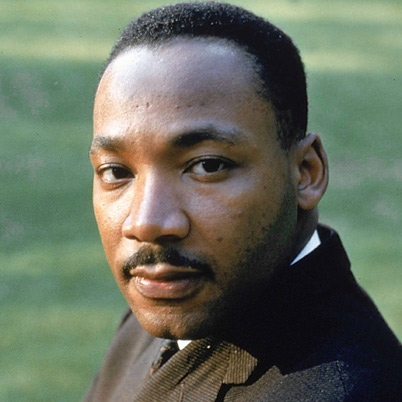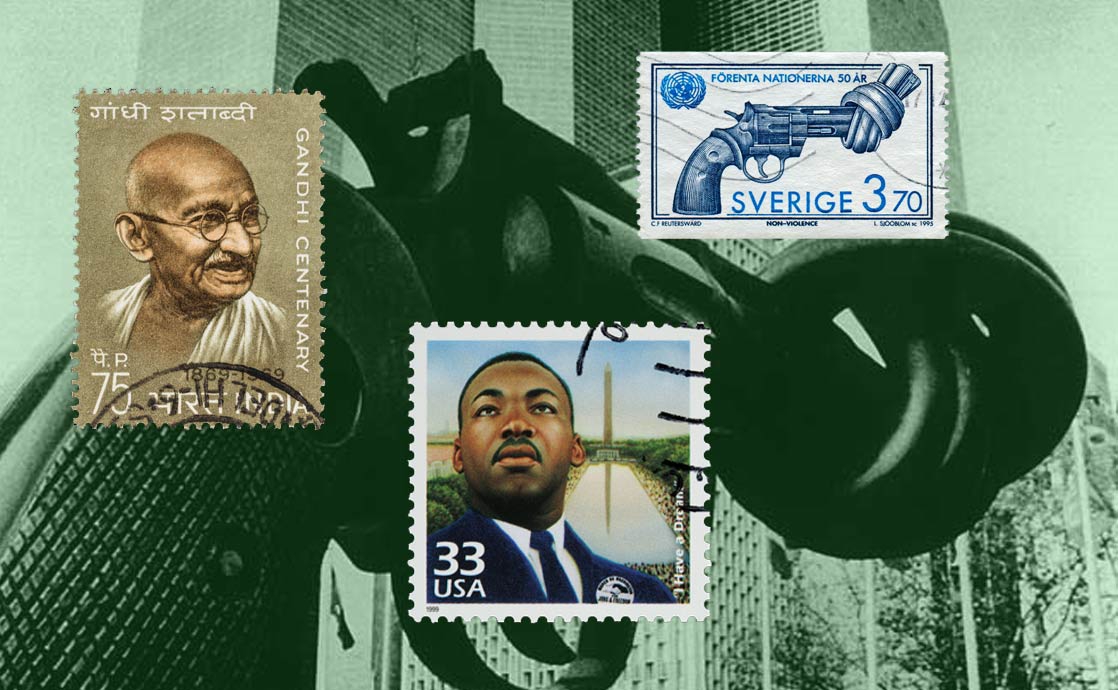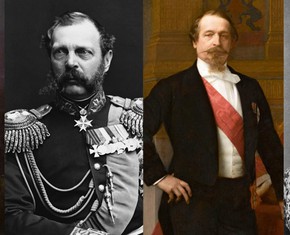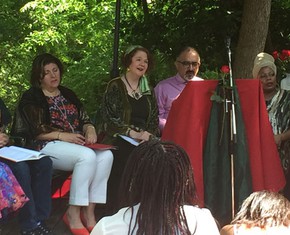The views expressed in our content reflect individual perspectives and do not represent the authoritative views of the Baha'i Faith.
Mahatma Gandhi, the Indian seer, mystic, leader and philosopher, started what many call the modern Non-violence Movement.
Gandhi’s movement and tactics, further studied, copied and expanded by Reverend Martin Luther King Jr. in America, have influenced multiple generations all over the world. Gandhi and King both developed their peaceful movements by the dynamic force of their examples, and by calling on their followers to adhere to nonviolent, humanitarian principles. The results: the overthrow of entrenched British colonial power in India and freedom for the Indian people, and the demise of an equally entrenched “separate but equal” racial segregation policy in the United States.
Both of these nonviolent men invoked what they knew of the soul, the scriptures, and the human spirit to translate their belief in God into modern contexts applied to the eras in which they lived. Their voices resonated with millions of people, and their movements changed the world. Both died from assassins’ bullets, even while they continued to teach nonviolent resistance to oppression. They never lost faith in the essential goodness of humanity.
In fact, King would certainly agree with this statement by the Mahatma:
You must not lose faith in humanity. Humanity is an ocean; if a few drops of the ocean are dirty, the ocean does not become dirty.
Gandhi would certainly agree with this statement by Dr. King:
I believe that unarmed truth and unconditional love will have the final word in reality.
Both the Mahatma and the Reverend knew full well that the generality of humankind was composed of decent, hardworking, common folk, longing for equality and peace no matter where they lived. Both the Mahatma and the Reverend gave their lives for their shared belief in the essential goodness and unity of humanity:
These souls have reached the highest station of self-sacrifice. Should the occasion arise, all that they possess would be freely given in order to unfurl the banner of the solidarity of the human race over the religions of the east and the west, so that all differences might be annulled and all peoples from one end of the earth to the other might sing in accord the song of life and peace, that it might be borne on the wings of light to the throne of the Father, there to be blended with the symphonies of the heavenly angels and thus heaven and earth become harmonized with the golden strains of the music of unity. – Abdu’l-Baha

These two great personages and their magnetic words and personalities did not happen by chance, but only developed through periods of personal and community suffering. Both were frustrated by their “masters” inability to give their followers (and all people), the rights they were entitled to–rights every human being is entitled to. They both fought for the right to be freed from slavery of any kind, the right to be respected and accepted, and the right to a safe and healthy life for all of God’s creatures.
Gandhi said, “Nonviolence is the first article of my faith. It is also the last article of my creed.” King also preached nonviolence and peace, restraining his followers from taking up arms and fighting the extreme prejudice black and brown people faced up through the 1950s and 1960s. Dr. King’s unspeakable assassination in 1968 removed that cap on pent-up righteous anger, and directly resulted in riots and violent actions all over the United States.

Both King and Gandhi asked us all this question: when the justice system is stacked against the impoverished and the inadequately educated according to all statistics, who is to blame? The government? The system? The schools? Parents? Students themselves? All are important cogs in the wheel of civilization, yet both of these men refused to blame others for society’s troubles—instead, they focused on the content of our characters and the ability of the common people to fix the problems they inherited.
King and Gandhi derived the source of their power and truth from their own experiences and unique souls, yes; from their environments and need to raise their voices loud, yes; from their own personal God and religion, yes; and from the people themselves burdened by chains and misery, no matter how “civilized” the outward laws seemed at the time.
We still live in turbulent times. Despite the sacrifices of leaders like King and Gandhi, they are not stopping and they will not stop. Baha’is believe they won’t stop until all people on earth recognize and love the oneness and wholeness of God; His one divine, continuing religion; and the oneness and wholeness of all humanity:
Wherever you find the attributes of God love that person, whether he be of your family or of another. Shed the light of a boundless love on every human being whom you meet, whether of your country, your race, your political party, or of any other nation, colour or shade of political opinion. Heaven will support you while you work in this in-gathering of the scattered peoples of the world beneath the shadow of the almighty tent of unity. – Paris Talks
You May Also Like
Comments

















A 'womaniser' one might say !
Also, 'Abdu'l-Bahá was not referring to them in the passage quoted: These souls have reached the highest station..."; rather He was speaking of the Baha'is.
Thanks for your comment